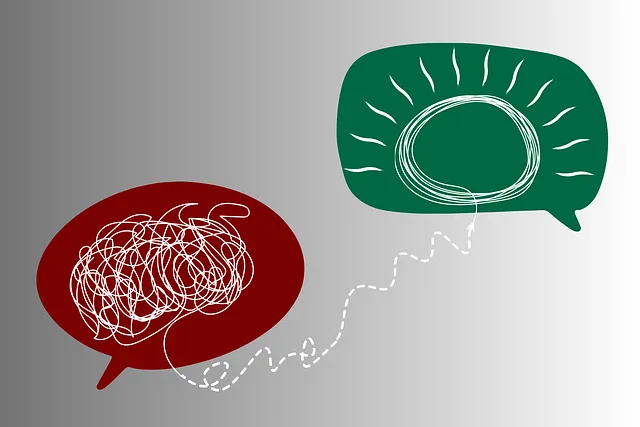Englewood Kaiser Permanente behavioral health services leverages group facilitation as a powerful tool for mental wellness support. Skilled facilitators create safe, non-judgmental spaces through structured exercises like Mental Wellness Journaling and active listening, fostering open dialogue, understanding, and belonging. Interactive activities such as mindfulness practices and art therapy build resilience, emotional intelligence, and peer connections, enhancing the therapeutic effect and risk management. Evaluating program impact through surveys, feedback, retention rates, and referrals, the services continually refine their approach to promote mental wellness and reduce stigma.
Mental wellness group facilitation is a powerful tool for fostering community and healing. This article explores effective techniques used by professionals at Englewood Kaiser Permanente Behavioral Health Services, highlighting key strategies for creating safe, supportive group environments. We delve into understanding mental wellness dynamics, the crucial roles of engagement and active listening, and successful measurement methods. Discover how these practices enhance individual growth and overall well-being within clinical settings.
- Understanding Mental Wellness Group Facilitation
- Role of Engagement and Active Listening
- Techniques for Building a Supportive Environment
- Measuring Success: Evaluating Group Facilitation Impact at Englewood Kaiser Permanente Behavioral Health Services
Understanding Mental Wellness Group Facilitation

Mental wellness group facilitation involves guiding a diverse range of individuals through discussions and activities aimed at enhancing their emotional well-being. It’s a powerful approach, often utilized by organizations like Englewood Kaiser Permanente behavioral health services, to foster community and support among participants. Facilitators play a crucial role in creating a safe, non-judgmental space where members can share experiences, gain insights, and learn coping strategies.
This technique goes beyond simple conversation; it incorporates structured exercises like Mental Wellness Journaling Exercises for self-reflection, stress management, and burnout prevention. Through skilled guidance, facilitators help participants navigate complex emotions, build resilience, and develop meaningful connections. Such group settings encourage open dialogue, promote understanding, and offer a sense of belonging—all essential components for maintaining mental wellness.
Role of Engagement and Active Listening

Engagement and active listening are pivotal components in facilitating effective mental wellness groups within Kaiser Permanente behavioral health services. As a group leader, creating an environment that encourages open dialogue fosters trust and strengthens peer connections. Through attentive listening, participants feel validated, allowing them to share their experiences and insights more freely. This two-way interaction not only enhances the therapeutic effect but also promotes a sense of community among members.
These techniques are particularly crucial in addressing complex issues like burnout prevention strategies for healthcare providers. Given the demanding nature of mental health professional roles, integrating emotional intelligence into group facilitation can help individuals manage stress and develop resilience. Moreover, active engagement supports Risk Management Planning for Mental Health Professionals by fostering a culture where participants feel safe to explore vulnerabilities, thereby reducing potential risks associated with untreated mental wellness issues within healthcare settings.
Techniques for Building a Supportive Environment

Creating a supportive environment is a cornerstone of effective group facilitation, especially within the context of mental wellness services like those offered by Englewood Kaiser Permanente behavioral health professionals. Encouraging open and honest communication starts with establishing ground rules that emphasize respect, confidentiality, and active listening. This sets a foundation where individuals feel safe to share their experiences without fear of judgment.
Additionally, incorporating interactive activities and exercises designed for emotional well-being promotion techniques can foster connections among group members. These activities may include mindfulness practices, guided visualizations, or even creative outlets like art therapy, all of which contribute to stress management and mental wellness. By combining structured guidelines with engaging and therapeutic activities, facilitators at Englewood Kaiser Permanente behavioral health services aim to create a nurturing environment conducive to personal growth and recovery.
Measuring Success: Evaluating Group Facilitation Impact at Englewood Kaiser Permanente Behavioral Health Services

Evaluating the impact of group facilitation techniques is essential for understanding their effectiveness in enhancing mental wellness. At Englewood Kaiser Permanente Behavioral Health Services, success is measured through a comprehensive approach that goes beyond mere attendance. They employ various methods to assess the overall well-being and satisfaction of participants. This includes pre- and post-program surveys to gauge improvements in symptoms, mood, and coping strategies related to stress management. By comparing these results, facilitators can identify which techniques are most impactful.
Furthermore, Englewood Kaiser Permanente Behavioral Health Services integrates feedback from participants and family members to evaluate the long-term effects of group facilitation. This qualitative data provides insights into how the program contributes to mental health policy analysis and advocacy by identifying areas for improvement and best practices. The organization also tracks participant retention rates and referrals to local resources, demonstrating a commitment to stigma reduction efforts and fostering a supportive environment for those navigating mental illness.
Mental wellness group facilitation plays a pivotal role in creating supportive environments, fostering engagement, and enhancing healing at institutions like Englewood Kaiser Permanente Behavioral Health Services. By employing techniques that encourage active listening, open communication, and trust-building, facilitators can significantly impact the success of these groups. Measuring outcomes through evaluation allows for continuous improvement, ensuring the effectiveness of group facilitation in promoting mental well-being among participants.

